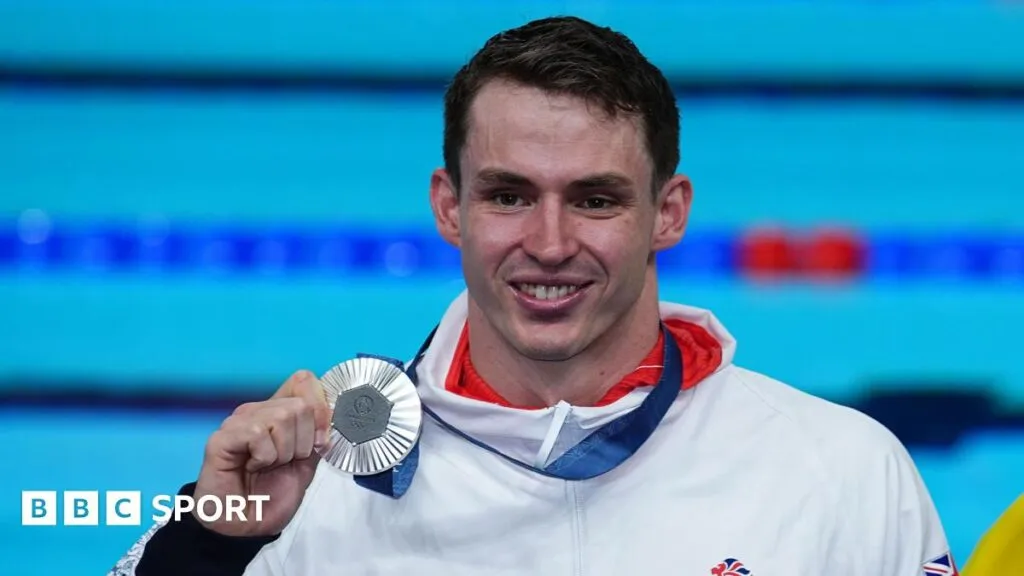Olympic swimmer Ben Proud has become the first British athlete to join the controversial Enhanced Games – but says he would never do anything to undermine ‘clean’ sport.
Proud, 30, is a world and European champion at 50m freestyle, and won silver at the 2024 Olympics in Paris.
But he has now committed to an event which allows athletes to take banned performance-enhancing drugs.
He never won Olympic gold or broke the 50m freestyle world record, which has stood since 2009, but feels that the Enhances Games “give me a new opportunity to continue this pursuit and see how far I can take things”.
Asked if he thinks the event undermines clean sport, Proud told BBC Sport: “No. I think it opens up the potential avenue to excel in a very different way.
“Speaking for myself, I think realistically I’ve achieved everything I can, and now the Enhanced [Games] is giving me a new opportunity. I definitely don’t think that’s undermining a clean sport.
“I really respect the sport I’ve been part of, and I would never step back in knowing I’ve done something which isn’t in the rules.”
Proud has previously supported UK Anti-Doping’s Clean Sport Week while British team-mates Adam Peaty and Duncan Scott have been outspoken against doping.
Proud said he sees ‘traditional sport’ and the Enhanced Games as “two very separate entities”, and that he found athletes breaking the rules “incredibly frustrating”.
“I see doping in clean sports as a complete no-go,” he said. “I don’t have any time for that.
“The fact it’s still happening is a problem. It’ll always be a cat and mouse game, there will always be people developing new techniques or people getting away with things.
“That’s one thing that has ruined sport for a lot of people. The anti-doping agencies just don’t have the ability to completely make sure everyone is clean and on a level playing field, and that to me has always been the biggest frustration.
“If you were part of my life for the past 12, 13 years, you’d see how much time you have to allocate to making sure we’re available to be tested on a daily basis, making sure we’re constantly giving our samples.”
BBC Sport has asked the World Anti-Doping Agency (Wada) for comment.
Wada’s latest Anti-Doping Rule Violations (ADRVs) report, external was published in July, covering 2022. It said that from 241,143 samples, 1,979 (0.82%) were reported to be adverse findings, of which 1,376 (69.5%) resulted in an ADRV.
